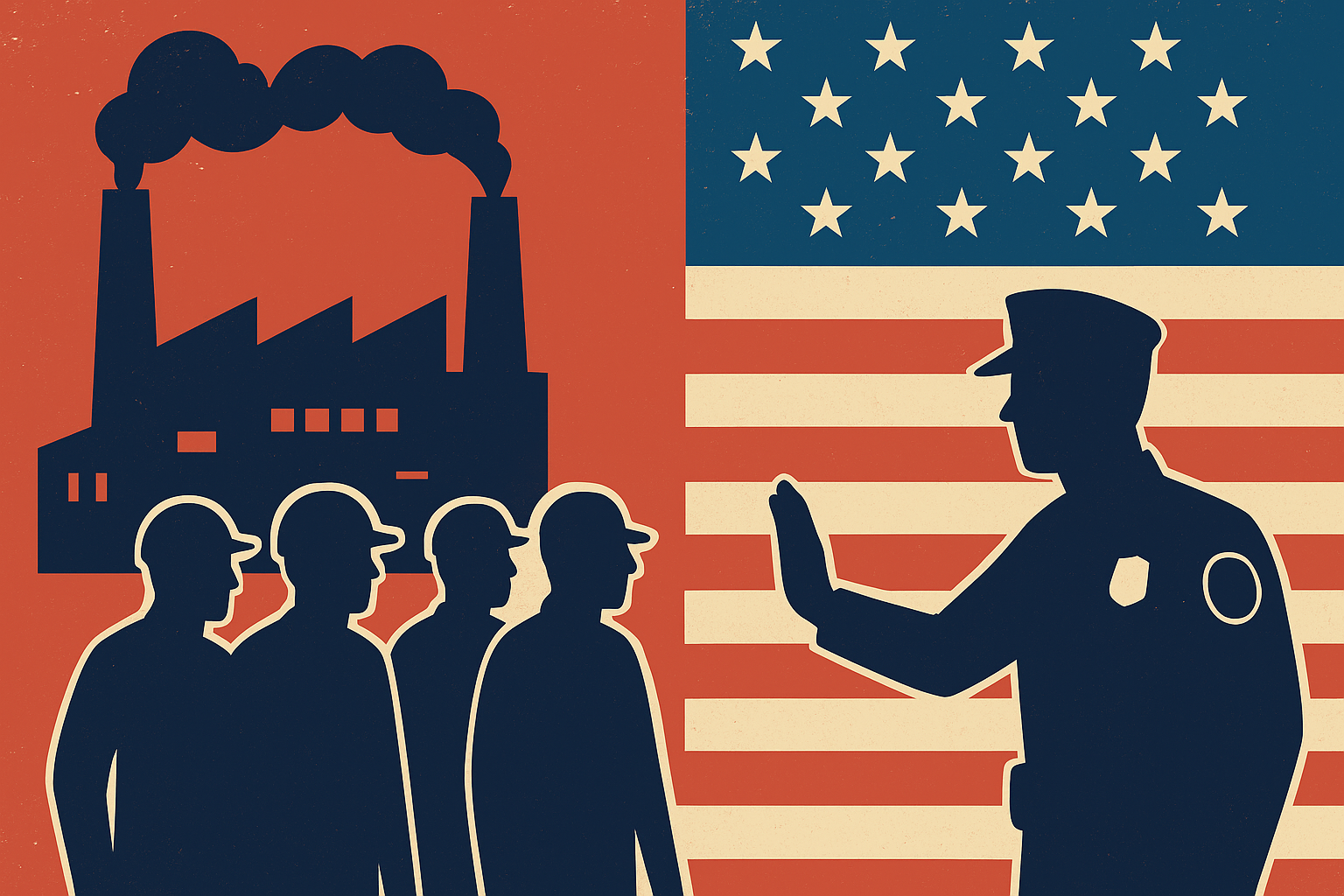Tensions in U.S. politics escalated this week after federal authorities raided a Hyundai–LG battery plant in Georgia, detaining nearly 500 workers, including roughly 300 South Korean nationals. President Trump underscored that foreign firms must respect U.S. immigration laws and invest in training American workers—a message resonating across industries reliant on international labor.
The crackdown comes amid broader enforcement initiatives, including fresh ICE raids in sanctuary cities like Boston and possible National Guard deployments in Chicago. Illinois officials have already signaled strong resistance, citing federal overreach. These developments introduce new layers of regulatory and operational risk for multinational corporations active in the U.S., particularly in sensitive manufacturing and technology-linked sectors.
Why This Matters for Investors
The Hyundai–LG raid highlights a growing political fault line at the intersection of labor, manufacturing, and global supply chains. The electric vehicle (EV) and battery sector—already under pressure from tariffs, rising input costs, and volatile demand—now faces labor-related disruptions.
South Korea’s confirmation that detained nationals will be repatriated raises immediate concerns about continuity in production schedules. The Georgia facility is a cornerstone for Hyundai’s EV ambitions in the U.S., and disruptions here could ripple through automakers’ timelines for meeting federal EV targets.
For investors, the incident underscores the heightened compliance burden on foreign firms. According to a 2024 McKinsey report, labor disruptions can raise production costs in manufacturing by 10–15% annually, particularly when compounded by regulatory scrutiny. That risk now looms larger for global automakers, battery suppliers, and the broader EV supply chain.
A Policy Shift with Market Implications
Trump’s stance on “American worker first” resonates with domestic political supporters but adds uncertainty for global firms. Analysts note that stricter immigration enforcement could reduce reliance on skilled foreign labor in sectors such as EVs, semiconductors, and renewable energy manufacturing—all critical to U.S. industrial policy.
The policy environment already shifted earlier this year when tariffs expanded on Chinese imports of EV components. With immigration crackdowns now layered on top, companies such as Hyundai, LG Energy Solution, and other Asia-based manufacturers face a dual challenge: navigating both trade and labor risks.
Markets have historically reacted strongly to labor enforcement actions in high-profile sectors. In 2019, meatpacking companies faced valuation hits after ICE raids disrupted operations. A similar market pattern could emerge in automotive and battery manufacturing if investor confidence erodes around labor stability.
Future Trends to Watch
- Labor Compliance Costs Rising: Foreign firms may need to increase legal and HR spending to align with shifting U.S. policies, which could compress operating margins.
- Supply Chain Diversification: Companies may accelerate plans to relocate or automate portions of their U.S. operations to mitigate labor vulnerabilities.
- Political Volatility Risk Premium: Investors may see U.S.-based foreign manufacturers trading at a discount as political risk is repriced into valuations.
- EV Sector Exposure: Automakers with aggressive U.S. EV expansion strategies—Hyundai, Kia, and Toyota—could be most exposed to labor enforcement headwinds.
Key Investment Insight
For investors, this is not simply a labor story but a broader political risk premium being attached to U.S. manufacturing assets. The automotive and EV battery sectors may experience near-term headwinds from labor compliance uncertainty, potentially weighing on share performance of firms like Hyundai Motor Co. ($HYMTF) and LG Energy Solution.
At the same time, U.S.-based suppliers and workforce training providers could see tailwinds as federal policy leans toward prioritizing domestic labor development. Companies with exposure to workforce automation and robotics in manufacturing could also benefit if firms accelerate plans to reduce reliance on human labor.
Global markets are already navigating tariffs, interest rate uncertainty, and shifting consumer demand. With immigration enforcement now emerging as a political flashpoint, investors should monitor how multinational corporations recalibrate their U.S. operations. The balance between compliance, cost, and competitiveness is becoming a critical axis for investment decision-making.
Stay tuned with MoneyNews.Today for daily insights on how politics, policy, and global market forces converge to shape tomorrow’s investment landscape.





